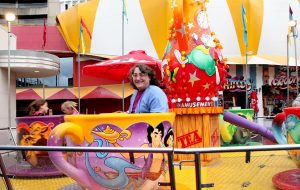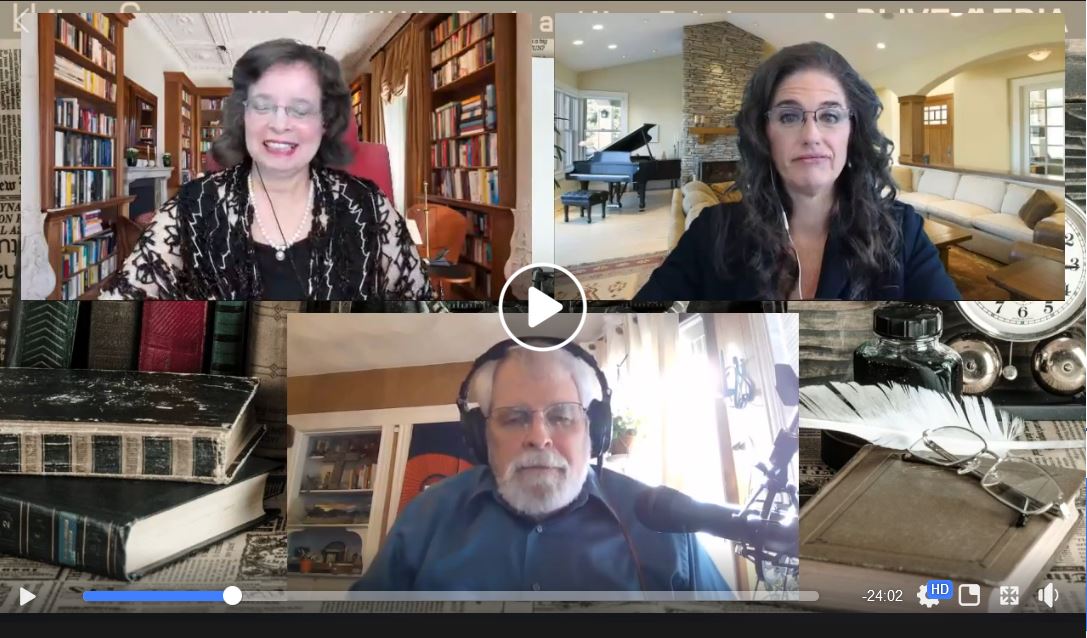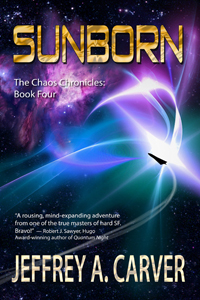Each month, I ask my patrons what they’d like for their new essay. They vote. This month the vote was split, and I chose the one I wanted to write about, because no-one was asking me and I had stories to tell. You’ve seen the announcement here – that I won a prize for one of my novels. A not-unimportant prize. It struck me as odd that only my patrons want to know why I wrote this novel. Or maybe the oddness is that people are curious, but have not asked. Either way, I wrote that essay and it will go out tomorrow or Thursday.
The story of the novel may be cool, but I thought you’d like the story of what happened on the night of the award ceremony. It was the beginning of what promises to be a very interesting year.
The Ditmars are the Australian equivalent of the Hugos – awards for writing and art and criticism and more voted by SF fans. My novel was one of the finalists for best novel. I assumed I wasn’t going to win because I could see no reason why I should. I was fully expecting Eugen Bacon to win, in fact, so I didn’t worry too much about the award itself. My brain pushed all deep thought and lists of debts owed to the side, although I did wonder when the announcement would be made.
I only heard about the award ceremony three hours before, and that was a form invitation that all the finalists received. It was already Rosh Hashanah. My New Year.
If it hadn’t been for the pandemic, I wouldn’t even have kept the computer on. Work was out of the question and for me, that award ceremony was work. It took me a while to puzzle this out. I did it on Facebook with many contributions from friends. I discovered then that a lot of people go to award ceremonies for fun. I don’t. I love it when people I care for get recognition, but I find the ceremonies themselves hard work. Speaking to a big audience about a topic I love, however, that’s fun.
I finally puzzled my way through the whole problem, sent an email to my publisher, and sent an apology to the organisers. The only reason it took me that long was that I was dealing with medical issues all that week. I had to decide through a haze and it was not comfortable physically or emotionally. My mother was happy with my decision, which was the big thing. I couldn’t tell her about it until afterwards, however. Three hours is not a long time.
When the three hours were nearly up, I was spending my new year with two of my close friends. Yaritji Green, in the middle of our chat, asked me if I knew someone and I told her they were on the Ditmar committee. I asked her if that meant she was at the online ceremony. Not only was Yaritji at the online ceremony, but she was willing to stand in for me if needed.
She asked me for some dot points, in case. I didn’t take the need seriously, for that whole day had turned improbable three hours before. I told her “This was an impossible work and the award is in an impossible year and it’s impossible for Gillian to be here cos it’s Rosh Hashanah.” I tried to think about it more but, “I have heaps of things I would say, but I can’t think of them tonight. My brain is outside work zone.”
She asked me about the nomination and I explained, “I had my heart stuff then wrote that novel the following October/November, BTW, so it’s very appropriate that you’re (as a doctor) my sub.” (I’ve cleaned up the impossible typing – everything looked impossible at that moment.) “I cogitated on the conditions for the novel for 20 days in hospital, then while I was recovering, then when I found myself with no paid work because the uni was leading up to sacking me and then splurged and I wrote it very quickly. You don’t need to say any of this – I’m just remembering that this was the first time I sorted out HOW to turn garbage into fertiliser. Fruitcake was the first flower in my new garden.”
My mind didn’t have much time to dwell on the irony in what I’d explained to Yaritji. In fact, the moment I finished typing it, I sent it and two words arrived from Yaritji.
“You won,” she typed.
She had been speaking on my behalf while I was trying to get my mind around why it was impossible to think lucidly about this novel. My immediate reaction to “You won” was “Wait…what!!!” Yaritji knows me very well and sent me a picture of her computer, with the announcement writ large on the screen.
That’s the end.That’s how it happened. I suspect I won’t believe I actually won until I see a trophy.

 The
The 




 In conjunction with the good folks at Bookbub, I am knocking 83% off the price of my
In conjunction with the good folks at Bookbub, I am knocking 83% off the price of my  Book Launch Today — Collaborators by Deborah J. Ross
Book Launch Today — Collaborators by Deborah J. Ross